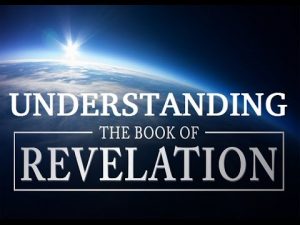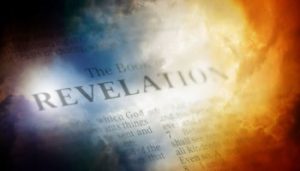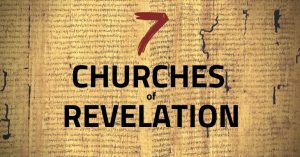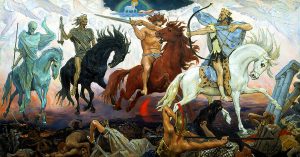Welcome to Day 1421 of our Wisdom-Trek, and thank you for joining me.
I am Guthrie Chamberlain, Your Guide to Wisdom
Mastering the Bible – Revelation’s Date and Connections to the Old Testament – Worldview Wednesday
Wisdom – the final frontier to true knowledge. Welcome to Wisdom-Trek! Where our mission is to create a legacy of wisdom, to seek out discernment and insights, to boldly grow where few have chosen to grow before. Hello, my friend, I am Guthrie Chamberlain, your captain on our journey to increase Wisdom and Create a Living Legacy. Thank you for joining us today as we explore wisdom on our 2nd millennium of podcasts. Today is Day 1421 of our Trek, and it is Worldview Wednesday. Creating a Biblical Worldview is essential to have a proper perspective on today’s current events. To establish a Biblical Worldview, you must have a proper understanding of God and His Word. Our focus for the next several months on Worldview Wednesday is Mastering the Bible, through a series of brief insights. These insights are extracted from a book of the same title from one of today’s most prominent Hebrew Scholars, Dr. Micheal S. Heiser. This book is a collection of insights designed to help you understand the Bible better. When we let the Bible be what it is, we can understand it as the original readers did, and as its writers intended. Each week we will explore two insights.
Mastering The Bible – Revelation’s Date and Connections To The Old Testament
Insight Seventy-Seven: The Date of the Writing of Revelation Is Important for Its Interpretation
 Most of the books of the New Testament can be dated with reasonable certainty. We know when Peter and Paul lived and died, for example, and their lives can be crosschecked with events in the book of Acts, which in turn can be aligned with Roman history to a large degree. The case of John and Revelation is harder, and the interpretive stakes are higher.
Most of the books of the New Testament can be dated with reasonable certainty. We know when Peter and Paul lived and died, for example, and their lives can be crosschecked with events in the book of Acts, which in turn can be aligned with Roman history to a large degree. The case of John and Revelation is harder, and the interpretive stakes are higher.
The key question for the date of Revelation is whether it was written before or after AD 70, the year the Jewish temple was destroyed. If Revelation was written before that date, much of the content of the book could be interpreted as leading to that cataclysmic event. That would mean most (some would say all) of the prophecies in the book have already been fulfilled. If it was written after AD 70, then the book really can’t be viewed that way—the prophecies would be still awaiting fulfillment. That’s a substantial interpretive gap.
There is no explicit reference to the temple being destroyed within the book itself. That suggests that the event had not happened—which would favor a pre-AD 70 date for the book. The other view—that the book was written after AD 70 – objects that this is an argument from silence. The debate opens with those fundamental differences. Then Revelation 11:1-2 comes into play:
Then I was given a measuring stick, and I was told, “Go and measure the Temple of God and the altar, and count the number of worshipers. But do not measure the outer courtyard, for it has been turned over to the nations. They will trample the holy city for 42 months.
Do John’s words indicate that Jerusalem and its temple were literally still standing and under attack? If that’s the case, then the city was destroyed in three and one-half years, and the book was written before AD 70. And that, in turn, is a serious reason to think it is not pointing to a future beyond our time. Ironically, the view that sees the prophecies as ‘‘literally” future-oriented must still interpret this passage symbolically—that Revelation 11:1-2 wasn’t about the actual temple a few years before AD 70. That view makes its argument by appealing to other items in the book. For example, it is argued that “Babylon” in the later chapters of the book actually refers to Rome (see Revelation 14:8; 16:19; 17:5; 18:2, 10, 21). The basis for this suggestion is that other books in the ancient world that are datable to the late first century AD use the term “Babylon” as code for Rome. If Revelation is using that code, it suggests that the book was written after AD 70. Irenaeus, an important Christian writer from the generation that followed the apostles, wrote that the book was written “toward the end of Domitian’s reign in the late first century AD. We can’t know for sure who’s right. That’s par for the course for Revelation.
Ironically, the view that sees the prophecies as ‘‘literally” future-oriented must still interpret this passage symbolically—that Revelation 11:1-2 wasn’t about the actual temple a few years before AD 70. That view makes its argument by appealing to other items in the book. For example, it is argued that “Babylon” in the later chapters of the book actually refers to Rome (see Revelation 14:8; 16:19; 17:5; 18:2, 10, 21). The basis for this suggestion is that other books in the ancient world that are datable to the late first century AD use the term “Babylon” as code for Rome. If Revelation is using that code, it suggests that the book was written after AD 70. Irenaeus, an important Christian writer from the generation that followed the apostles, wrote that the book was written “toward the end of Domitian’s reign in the late first century AD. We can’t know for sure who’s right. That’s par for the course for Revelation.
Insight Seventy-Eight: The Book of Revelation Makes Extensive Use of the Old Testament
 One of the reasons we shouldn’t neglect the Old Testament is because we can’t understand the New Testament without it. Every book of the New Testament contains quotations from and allusions to the Old Testament. I’m not talking about merely mentioning stories, although that happens. New Testament writers articulate theology using the Old Testament. The book of Revelation is a dramatic case in point.
One of the reasons we shouldn’t neglect the Old Testament is because we can’t understand the New Testament without it. Every book of the New Testament contains quotations from and allusions to the Old Testament. I’m not talking about merely mentioning stories, although that happens. New Testament writers articulate theology using the Old Testament. The book of Revelation is a dramatic case in point.
No other book in the New Testament is as thoroughly saturated with the Old Testament as the book of Revelation. The book draws upon the Old Testament hundreds of times. While certain books were particularly influential (Daniel, Isaiah, Zechariah, Ezekiel), the apostle John essentially considered the entire Old Testament as a source for his book.
The dominant influence of the Old Testament may seem surprising. One reason is that John often does not preface his use of the Old Testament with formulaic phrases like “thus says the Lord” or “as it is written.” Instead, John embeds Old Testament material directly into his scenes, visions, and angelic revelations. He presumed his readers would be so literate concerning Old Testament content that telegraphing when he wove it into his work wasn’t necessary.
One of the questions John’s use of the Old Testament has generated among scholars is whether he is faithful to the original context of the material he quotes. The question arises from passages like Revelation 5, where John combines creaturely imagery from both Daniel and Ezekiel in his vision of the four beasts Daniel 7 “full of eyes” and “the wheels” of Ezekiel 1. Is John just “doing his own thing” with the Old Testament?
John doesn’t ignore the original meaning of these and the other passages he cites from the Old Testament. He is fully aware of the original contexts. Instead, he applies the Old Testament material (words, phrases, symbols, metaphors, etc.) to new apocalyptic messaging in his own work.
What all this means is that the key to interpreting the Old Testament isn’t the newspaper or the most recent end times book; it’s the Old Testament. No one can claim to understand the book of Revelation without a thorough grasp of the Old Testament passages John quotes or alludes to. Those Old Testament passages must first be understood within their own original literary contexts and ancient Worldview. Only with that framework in hand is anything John says or describes in the least way comprehensible. The neglect of the Old Testament is one reason why nearly all of what it says is a complete mystery to those who read it.
That will conclude this week’s lesson on another two insights from Dr. Heiser’s book “Mastering The Bible.” Next Worldview Wednesday, we will continue with two additional insights. I believe you will find each Worldview Wednesday an interesting topic to consider as we build our Biblical Worldview.
Tomorrow we will continue with our 3-minute Humor nugget that will provide you with a bit of cheer, which will help you to lighten up and live a rich and satisfying life. So encourage your friends and family to join us and then come along with us tomorrow for another day of ‘Wisdom-Trek, Creating a Legacy.’ If you would like to listen to any of our past 1420 treks or read the Wisdom Journal, they are available at Wisdom-Trek.com. I encourage you to subscribe to Wisdom-Trek on your favorite podcast player so that each day’s trek will be downloaded automatically.
If you would like to listen to any of our past 1420 treks or read the Wisdom Journal, they are available at Wisdom-Trek.com. I encourage you to subscribe to Wisdom-Trek on your favorite podcast player so that each day’s trek will be downloaded automatically.
Thank you so much for allowing me to be your guide, mentor, and, most of all, your friend as I serve you in through this Wisdom-Trek podcast and journal.
As we take this Trek together, let us always:
- Live Abundantly (Fully)
- Love Unconditionally
- Listen Intentionally
- Learn Continuously
- Lend to others Generously
- Lead with Integrity
- Leave a Living Legacy Each Day
I am Guthrie Chamberlain….reminding you to ’Keep Moving Forward,’ ‘Enjoy your Journey,’ and ‘Create a Great Day…Everyday’! See you Tomorrow!
Leave a Reply